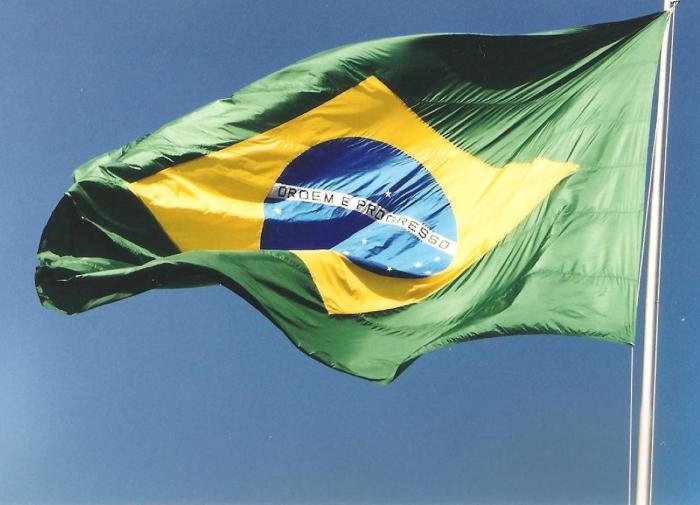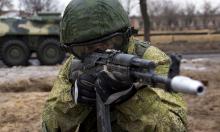Another success of Brazilian diplomacy
The so-called “Peace Summit” held in Switzerland had an obvious outcome. It didn't lead anywhere. It could, since from the beginning the failure of the alleged negotiations was imminent.

Convened at the request of Ukrainian President Vladimir Zelensky, the high-level meeting was not attended by Russia. As the Brazilian government rightly argued, a meeting that wants to discuss the steps to end a conflict cannot take place without all sides of the conflict being represented and with the same rights to speak.
Russia was not invited. He had also already said that he would not participate in a meeting in Switzerland anyway, since the country abandoned its traditional neutrality status by joining the United States and Europe's campaign against the Russians.
It has always been a demand of the Ukrainian government that Russia not participate in peace negotiations. But high diplomacy cannot operate under the same precepts as a war propaganda campaign. No matter how much you consider the enemy to be a demon, it is essential to negotiate with him when you cannot defeat him on the battlefield. And Ukraine, in fact, is losing to Russia on the battlefield.
Ukraine losing on the battlefield
In this sense, perhaps the Ukrainian government itself is more interested in establishing a peace negotiation than the Russian one. Ukraine has no prospect of recovering lost ground – on the contrary, it could lose even more territory to Russia.
Zelensky's denials are typical of a spoiled child, who has become accustomed to the sumptuous gifts received almost daily by dads and uncles in the West. But none of these gifts are having the desired effect. Negotiation is the only solution for Ukraine.
As a government that, from the beginning, has projected itself as an actor for the stabilization of world peace, Brazil has been consistent with the diplomatic and peaceful principles of both its foreign policy tradition and the ideas expressed by President Lula.
The Brazilian stance has been pragmatic rather than ideological. Lula has already spoken with both Zelensky and Putin. He has already “poked” the Ukrainian president and also the Russian president, stating that they both share the same amount of blame for the war. After all, said Lula, whoever doesn't want war needs to sit down and talk. And the conversation cannot be with the wall, but with the other side.
Therefore, it is absolutely natural that Brazil did not send a high representative to the Swiss Summit, nor signed the final declaration. Brazil's behavior is in line with that of other countries which, unlike Switzerland, have positioned themselves in a truly neutral manner.
South Africa, Saudi Arabia, the United Arab Emirates and India (all from the BRICS) also refused to sign the final declaration of the meeting, after all they equally understand that no serious negotiations can be carried out without the other party to the conflict, Russia. They do not want to adhere to the pure and simple propaganda that was such a declaration, as well as the leadership as a whole.
The result was that, rather than representing an isolation of Russia, the Swiss Summit was a huge victory for Moscow. The plan by Zelensky and his sponsors backfired.
The President of Switzerland, Viola Amherd, herself had to admit that Russia needs to be included in the negotiations. A unilateral summit meeting has no future.
On the contrary, a meeting in which the Russians are represented on equal terms with the Ukrainian side is the only way to achieve any diplomatic success. And a meeting like this would attract the highest international attention, as it would be attended by countries that did not go to Switzerland or did not adhere to the final declaration.
And these countries are precisely the leaders of the so-called “Global South”, that is, of the global majority that constitute the countries historically oppressed by the American-European minority. This majority is not interested in continuing the war to weaken Russia, unlike the minority.
Zelensky's path leading nowhere
The Zelensky government seems to have understood that the path chosen so far has led nowhere – not even for the interests of Ukraine and its allies. Russia has only grown stronger since 2022, not the other way around. The supposed Russian isolation from the “international community” is nothing more than propagandistic rhetoric.
“We think it will be possible to invite a representative from Russia,” said Andrey Yermak, head of the Ukrainian presidential office, referring to a new, “more representative” summit that aims to “end the war and resolve the crisis ”.
It is becoming increasingly clear that the only viable path is negotiations of the type proposed by Brazil and China, who jointly declared the need for a meeting in which all parties to the war are fully represented on equal terms.
A summit like this, more possible than ever, would be a historic victory for Brazilian diplomacy and would project Brazil's influence in an unprecedented way. All truly neutral countries – the global majority – agree with the same proposal as the Sino-Brazilian one. And the war-promoting countries (USA and Europe) have practically no alternative left: sit down to negotiate with Russia or deepen their own crisis by continuing the war in Ukraine, which Russia is winning.
Brazil is clearly at the forefront of poor countries, and in this scenario this means that it is more of a protagonist than rich countries in the diplomatic sphere. The sectors most dependent on the United States within the country have always attacked the Brazilian initiative for peace in Ukraine, echoing the discomfort of the White House and the Pentagon with Brazil's sovereign stance. These ideas must be resoundingly rejected, as they are a huge delay in relation to the policy that President Lula is trying to carry out, and which is proving to be absolutely successful.
Using geopolitical vocabulary, Brazil has all the conditions to become a top global player if it maintains this sovereign stance.
Subscribe to Pravda.Ru Telegram channel, Facebook, RSS!




